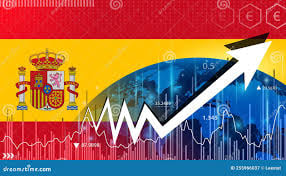Spain’s Economy Surges Ahead with Growth

Spain’s economy did well against its eurozone peers with a pleasing 3.4% year-on-year growth in Q3, dwarfing the eurozone average of 0.9%. A lot of this fast growth can be attributed to a pandemic recovery effect, as Spain—heavily reliant on tourism—went through a somewhat delayed rebound.
Many current figures show that Spain is on a faster growth path than its pre-pandemic average, revealing more than just a catch-up effect. In the month of September on its own, tourism ballooned, with 9.6 million international visitors, boosting spending to €12.62 million, up 12.7% from last year. While tourism remains strong, experts warn that growth could flatten, and rising protests by agitated locals against mass tourism may add further constraints.
Beyond tourism, Spain’s labor market is driving growth. Unemployment dropped to 11.21%, its lowest since 2008, fueled in part by a 9.1% increase in the foreign-born workforce. This helped businesses expand without excessive wage inflation.
What Does This Mean for Me?
Despite this positive direction, there are challenges down the road. Spain’s exports may face bottlenecks in industries like automotive and pharmaceuticals, potentially dampening future growth.
Also, while the European Central Bank’s monetary easing might stimulate consumption and private investment, Spain needs to focus on productivity-enhancing reforms. With inflation now below 2% leading to cautious optimism among analysts, Spain needs to transform this growth spurt into lasting economic resilience.
More News
.webp)
Japan’s Rate Shift Is Rippling Through Global Bond Markets
1 week ago

China’s Growth Engine Stalls as Consumers and Investors Pull Back
1 week ago

Egypt’s Recovery Gains Traction as Household Pressure Lingers
2 weeks ago

OECD Warns AI and Tariffs Will Test the Global Economy
3 weeks ago

Zero Tariffs, Higher Drug Bills as US and UK Reset Pharma Trade
3 weeks ago

Catastrophe Bonds Go Global as Climate Risk Meets Yield Hunting
1 month ago
.webp)
Canada Shields Steel and Lumber Industries From Tariffs
1 month ago

Trump Drops Selected Tariffs in Response to Inflation Pressures
1 month ago